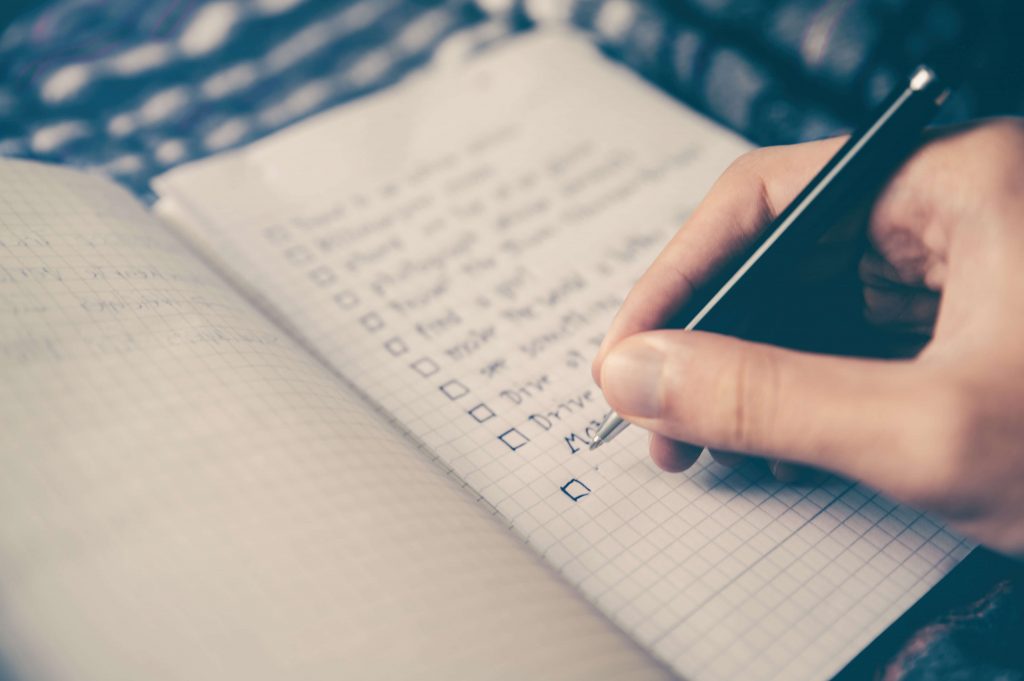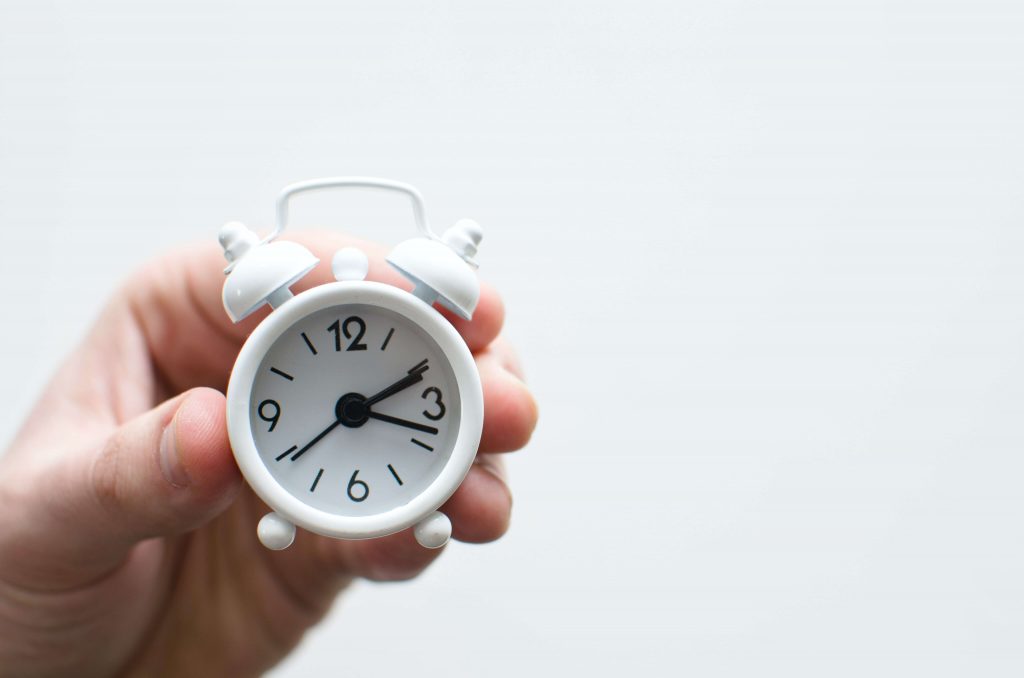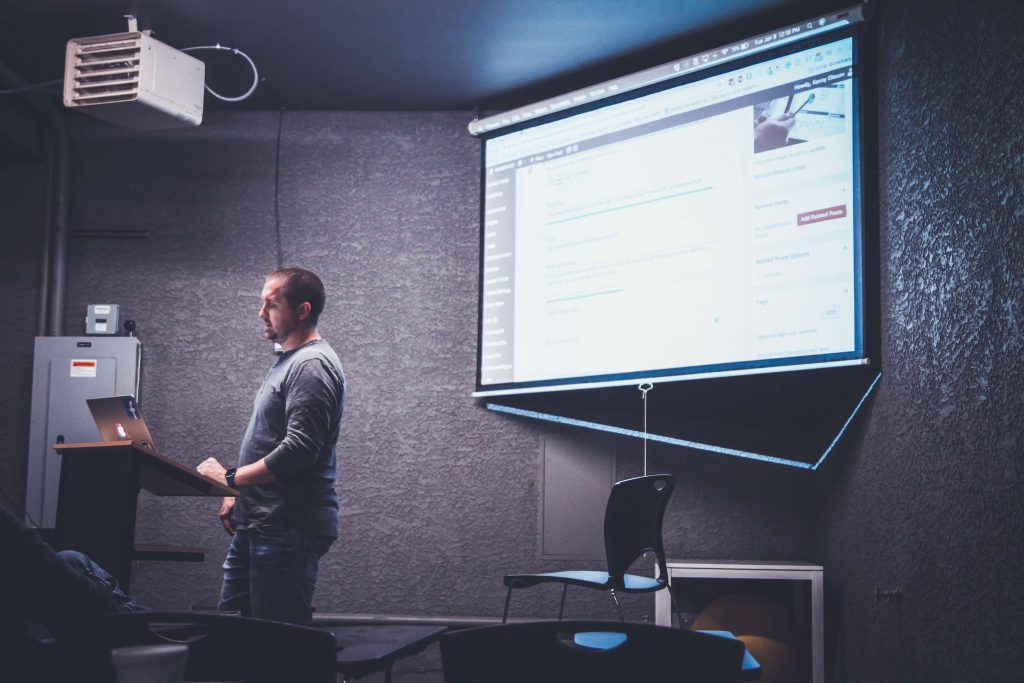Everything you need to know as a new PhD student
The trajectory of a PhD course is a steep but steady learning curve. You have likely already received some advice on your first steps as a PhD student such as reading research papers, properly communicating with the supervisor, and developing good research habits. However, such advice often lacks some crucial details that may not be immediately apparent to a new PhD student. This guide is meant to be a comprehensive overview of things to know as a PhD student to help you on your academic journey.

What to Expect in Your First Month as a PhD Student
Correct planning and preparations during the first month of the PhD course put you in the driver seat for the rest of the course. Following are the key elements you could experience during the first month as a PhD student:
Orientation and Paperwork
During the first week itself, you’ll be surrounded by stacks of administrative related papers. You may be engrossed to fill in various forms and documents including submission of personal details, address information, and so on. Some meetings will be related to your course, funding, or conference opportunities, while others will be about non-course stuff like where the college library is or how to enroll in the university’s journal database. Thus, be prepared for loads of administrative and menial tasks during the first month of your PhD!
Introduction with the Supervisor(s)
The essence of first month of a PhD course is encapsulated by the meeting with your guide or supervisor. It will be the vital stage of your PhD process wherein the supervisor will meet you, perhaps along with the supervisory team or colleagues. This period will be a great time to develop a strong professional and personal bond with the supervisor as you’ll be going to work together for the next few years.
Reading, Reading and Reading
During the first month, you may be asked by your supervisor(s) to read variety of research papers from a domain of your choice. Moreover, they may even ask you to build a short PhD literature review of the findings of the research papers you’ve read. Use this time to develop a habit of reading research papers. This will hone your thought process during the first month of your PhD.
Registering for courses and going through course work
Different PhD courses follow different patterns of course work. For some, there may be a broad curriculum of courses wherein you’ll have to register before a deadline. For others, there may be various professional but voluntary courses and workshops to enhance different skillset. You’ll have to go through the mandatory course work and select amongst the optional ones according to your liking.

What Kind of Support Should New PhD Students Expect from Their PhD Supervisor?
Preparation of a great PhD dissertation depends a lot upon quality of interaction between a PhD student and the supervisor. But what exactly should a student expect in terms of supervision? And what are the elements that lie (or not) in the ambit of supervision? Well, this section of the guide clears the air on what kind of support you should expect from your PhD Supervisor.
Expect expert advice
Firstly, you can expect the supervisor to provide you competent and expert advice on your topic of research. For instance, in case you’re opting for a research topic or an approach which has been commonly used before, then they should caution you regarding its usage. You can also expect your PhD supervisor to give you suggestions on the sources of material, websites to visit for research, and provide general consultations on your literature review.
Expect dedicated one-on-one time
Secondly, a PhD candidate can expect some dedicated one-on-one time for meetings and dialogue with the supervisor on a regular basis. Now, regular is a nebulous term, it can be referred to daily, weekly, or every fortnight, depending upon the prior discussions between the student and the supervisor.
Expect productive feedback
Thirdly, a PhD student should expect consistent and regular feedback from the supervisor on the developments of the PhD thesis writing. The feedback regime is vital during the early stages of the research to ensure that the PhD student is on the right trajectory.
Expect to be the first line of contact
Fourthly, you can expect your supervisor to serve as a mediation and representation hub of the University for you. A supervisor will act as a point of contact in terms of your engagement with the University. They will be responsible for your direction on writing the PhD thesis, your specialized development, monitoring your growth, and even observing your behavior regarding the ethical guidelines of the university. Hence, they will be your first line of contact in case any issues or developments regarding the course happens. You can expect at least a rudimentary form of support in case of concerns.
Limitations to supervision
Having said that, there are certain practices you should not expect from a PhD supervisor. Your supervisor is a point of contact that helps you regarding your research and you need to comprehend the difference between help and teach. Moreover, you should not expect your supervisor to be authoritative regarding your PhD research like a teacher. You should also be responsible on your own regarding meetings, progress, and seeking input.

5 Well-Being Challenges Faced by PhD Students
PhD thesis writing is a daunting and lengthy process. In this section of the guide for new PhD students we have a look at some of the biggest challenges that PhD students face – and suggest potential solutions!
1. Mental health issues
PhD students have to cope with considerable pressure posed by looming deadlines and a huge amount of personal investment. Because of considerable stress created by these challenges, PhD students are reported to have high levels of mental health issues, including depression, the feeling of isolation, insomnia, anxiety, and eating disorders. For this reason, decompression through meditation, communication with peers, arts, reading, or anything else is one of the most effective ways of how PhD students can maintain their mental well-being.
2. Funding
Since PhD takes at least three years, many students rely on external funding, which can become a source of concern. For example, the bank could reduce funding while still in the middle of the PhD programme, adding to a student’s stress level and increasing the risk of mental disorder. In this situation, approaching supervisors for advice is probably the best option you can take to find a solution.
3. Conflict with the supervisor
Finding a good supervisor is another challenge that many PhD students face when writing their theses. Supervisors may not be properly engaged and involved in your study, resulting in poor support and participation. Some supervisors can be frequently unavailable or extremely bossy while ignoring their mentoring role. To deal with such situations, you could try to meet your supervisors more frequently or ask them to take a step back.
4. Time management
Since writing a PhD thesis is a complex process that involves multiple tasks, there is always something to do to make your study closer to completion. That is why every academic, let alone a PhD student, must learn when to take advantage of new learning opportunities and when to say ‘no’ to an extra task. Moreover, many PhD students have plenty of commitments and responsibilities besides their PhD thesis, making it more challenging for them to allocate enough time in their day to fulfil the required tasks. Procrastination is another reason why some students experience certain issues with their time management. To deal with these issues, ‘outsourcing’ tasks to PhD writing services could be a good idea.
5. Work-life balance
This challenge is closely linked to the challenge of time management since a student’s inability to complete their tasks in time often leads to working late, leaving less time for family, friends, and hobbies. Again, using PhD services could reduce the negative impact of an incredibly lop-sided schedule on students and help them enjoy a healthy social life instead of working on their PhD thesis every evening or weekend. In the end, feeling happy and enjoying writing your PhD is key to success so it should be valued.

6 Easy Mistakes to Avoid When Completing Your PhD
Sometimes, failing a PhD is not the result of making big mistakes, but rather making small mistakes that mount up over time. Below are six easy mistakes to avoid when completing your PhD.
1. Being Complacent
Clearing the entrance process and getting enrolled in a PhD program is merely the tip of the iceberg. Thus, becoming complacent and proceeding with a relaxed attitude will be one of the biggest mistakes you can make. With a period of at least 3 – 5 years for a PhD, it’s easy to fall into the trap of feeling like you have the time to procrastinate. However, we would suggest that the earlier you start the process, the less arduous will the writing be. Irrespective of the content, you should start early with notes, bullet points, initial research, and so on.
2. Incorrect formatting and structuring
The structuring and formatting of a thesis is very important, but often overlooked. It can be a difficult and time-consuming exercise to conduct for your thesis. In addition, a majority of candidates leave the formatting and structuring until the end of the project, and thus, the end result is full of mistakes due to hasty, last minute work. Therefore, formatting and structuring of your thesis should be done on consistent basis, so that it isn’t completed in a rush.
3. Avoiding over-commitment
PhD Students often want to get it right on the first try, which makes them likely to over emphasise on the research proposal. Due to the concerns of selection and rejection of the proposal, students spend too many resources, time and effort than required on particular sections. Thus, excluding other vital areas of the project. It should be noted that over emphasising on selective sections may be counterproductive for your PhD thesis writing.
4. Not keeping up to date with changes
A PhD is lengthy, monotonous and sometimes extremely boring, and this can make candidates feel lost. The majority of PhD students make the mistake of not checking with the changes in administration or updates in PhD regulations. Notably, various new scholarships, new information regarding re-enrolling, submission dates, etc. are published on the Universities’ website every now and then. Therefore, PhD candidates should be checking emails, the University’s website, and communicating with the administration on a regular basis.
5. Not keeping a record of information
The process of writing a PhD thesis entails generation of research ideas, assessment of key empirical studies and new leads. For instance, you went to a research seminar and gathered vital ideas for research during the deliberations. You won’t be able to recall all the great ideas unless you’ve noted them down. Therefore, keeping ideas and relevant information in one place makes it easy for you to recollect and access the information at a time later on.
6. Lack of Planning
It is pivotal to understand that writing a PhD thesis and the process associated with it, is extremely lengthy and convoluted. With multiple sections and a variety of priorities, setting up different milestones and planning based on different periods can work wonders in making your PhD journey less complicated. Moreover, the technique also works as an opportunity to reflect on your progress.

How to easily make friends as a new PhD student
As PhD is a demanding course, many PhD students detach themselves from the outside world to be able to meet the demanding targets of the study. However, this doesn’t mean that you have to end your social life – take this as an opportunity to get out of your comfort zone and reach new people! If all these things sound nerve-wracking to you, here are some simple tips which will help you easily make new friends as a PhD student.
Be confident
We all feel intimidated to go to a completely new environment where we hardly know anyone. However, being confident while approaching new people can make the entire process of making new friends much simpler. There are chances that your fellow PhD colleagues will be equally as nervous as you are. So try to break the ice and start a conversation with your course-mates. Also, greet your fellow students with a smile, it will make the people around you feel more comfortable.
Attend university events
To bring the students together, many universities host a number of events at the beginning of each academic year. As these events help you meet and get familiar to different people from your and other fields, do not miss attending any such events. Such events also set an ideal platform for students to meet like-minded PhD scholars.
Be open to new friendships
While you might not be able to find someone similar to your old best friends with whom you can share every secret of yours, there are high chances that PhD course will introduce you to some compatible course mates. Having a few friends on campus will make you feel more comfortable. You can occasionally meet each other and even discuss the progress of your PhD thesis writing. By this way, you can get some help with your PhD thesis and genuine feedback on your PhD dissertation.
Be a part of different communities
By the time you undertake a PhD course, you become much matured and a little bit older from your initial university days. Instead of hanging out with Bachelors students, be an active part of different communities. Whether it is an exercise class, a book club, a social volunteer group or a part-time job, based on your interests try to be a part of societies which have like-minded people. Mix up with real adults and look beyond your student perspective to make friends with your peers.

Can You Really Juggle a PhD and a Full or Part-Time Job as a new PhD Student?
Many students wish to continue their work while pursuing a PhD – but are dreaded with the thought of squeezing any additional commitments in an already demanding PhD research and PhD thesis writing. Below are some tried and tested tips which will help you balance your PhD and a part-time or full-time job.
Plan in advance
As working while pursuing a PhD can be overwhelming, make sure to plan your schedule in advance. Take a calendar and mark all the important dates and list all your deadlines for submitting your PhD proposal or PhD dissertation. Make checklists, to-do lists and planners to ensure that you do not miss out anything important. On your work front, plan for your busier days in advance and make small but reasonable tweaks in your PhD schedule.
Do not stress yourself
Having PhD and job responsibilities can be stressful. The job can at times put a constraint on your PhD thesis, but do not let your job create any additional stress or pressure. Avoid working extra shifts to ensure that you can give adequate time to your PhD as well. As many workplaces enthusiastically promote continuous learning, do not hesitate to share your PhD schedule with your manager. Try working for flexible hours or get some time off for your PhD research or PhD writing.
Be more efficient
To make your workload easier while undertaking your studies, try to find ways to make yourself more efficient at work and university. Avoid doing things which do not have any significant impact on your final output. Ignore any unessential tasks and leverage your resources better to make the most out of your limited time. For example, you can take professional help from industry experts who can help you with their PhD dissertation writing service and PhD assignment writing service, while you give the required time to your job and your personal life.
Stay on track
Taking on a full-time job will give you a very limited time to spend on your PhD assignments. So, use every single opportunity and do not leave any stone un-turned. Never delay your PhD assignments until you are confident that you will cover up the lost time. Keep yourself focused and always stay on track to avoid submitting an average PhD thesis due to time constraints. Don’t forget to spend some of your free time on quality activities to boost your mental and physical health.

Things to know as a PhD student
New PhD students often find themselves overwhelmed during the first few months of their PhD course. It can be easy to get lost or to start doubting yourself. Below we provide answers to the top questions asked by new PhD students that haven’t been covered by the guide above – but are still important to get you on the right track with your PhD journey!
How difficult is it to write a PhD thesis?
Writing a PhD thesis is for the most part a question of persistence. Show up to your courses and meetings, keep your supervisor updated, read research papers, and work on your thesis little by little. Don’t give up – as long as you keep working, you’ll get there! It can be very helpful to check your University library and read PhD theses of previous graduate students: this way you’ll have a better understanding of what you are expected to produce.
Is it normal to struggle as a new PhD student?
It is not unusual for new PhD students to get impostor syndrome during the first months of a PhD course. A good remedy is talking to your peers – it is very easy to feel like you are the only one who is struggling, but you’ll quickly realize that almost everyone is struggling with something! Make it a habit to discuss courses and general progress with other PhD students – not only it will help you get a better handle on some of the material, but it will also be good for your mental health.
Is it ok if seek expert advice or consult others in my University or online?
As a researcher, you are expected to be independent. But independence is not the same as isolation! Being independent means that you have the skills, knowledge, and critical thinking to conduct research and initiate discourse. You shouldn’t shut yourself away from interaction with the research community, as communication is a necessary part of a PhD course. So don’t be afraid to ask (potentially stupid) questions – it is likely that you won’t be the first person to ask them!
How do I know if I’m on the right track with my research?
Develop a habit of getting as much feedback on your research as frequently as possible. While your supervisor is the most obvious choice for this, you can also try other experts at your University, professors at conferences, other PhD students, or PhD writing services.
What to do if I don’t feel like my research would make a significant contribution?
When hearing the phrase ‘significant contribution’, new PhD students often think of some breakthrough experiments or new theories. In the context of a PhD course, ‘significant’ does not necessarily mean ‘revolutionary’. Don’t expect your research to change the whole discipline – instead, pick an area where you feel like you can contribute by participating in the research discourse. You can view your PhD thesis as a rite of passage in which you want to demonstrate to the research community that you can conduct research on your own and add to existing knowledge.
How do I know if I’m up-to-date on the literature?
Use online resources and platforms to keep track of new research papers. For example, you can sign up for alerts (e.g. on Google or on websites of specific journals) so that you can stay on top of new research. Set up several alerts with different parameters such as keywords or authors to get information on new studies as soon as they are published. You can also talk to senior PhD students in your field to make sure you haven’t missed anything relevant.
How do I keep up with the deadlines?
Make sure you are applying for conferences and publications! They provide external deadlines that can help you stay on track with your research. In addition, avoid hiding from your supervisor – a common mistake that new PhD students make is not communicating enough. Keep your supervisor informed about the current state of your research project, your concerns and interests, outside opinions and feedback, decisions, and life circumstances that affect your thesis.
How much free time will I have as a new PhD student?
You should treat your PhD as a job. Depending on the program, you can expect to commit up to 40 hours a week towards coursework and research. However, don’t forget to set aside some time for yourself to avoid burning out!

